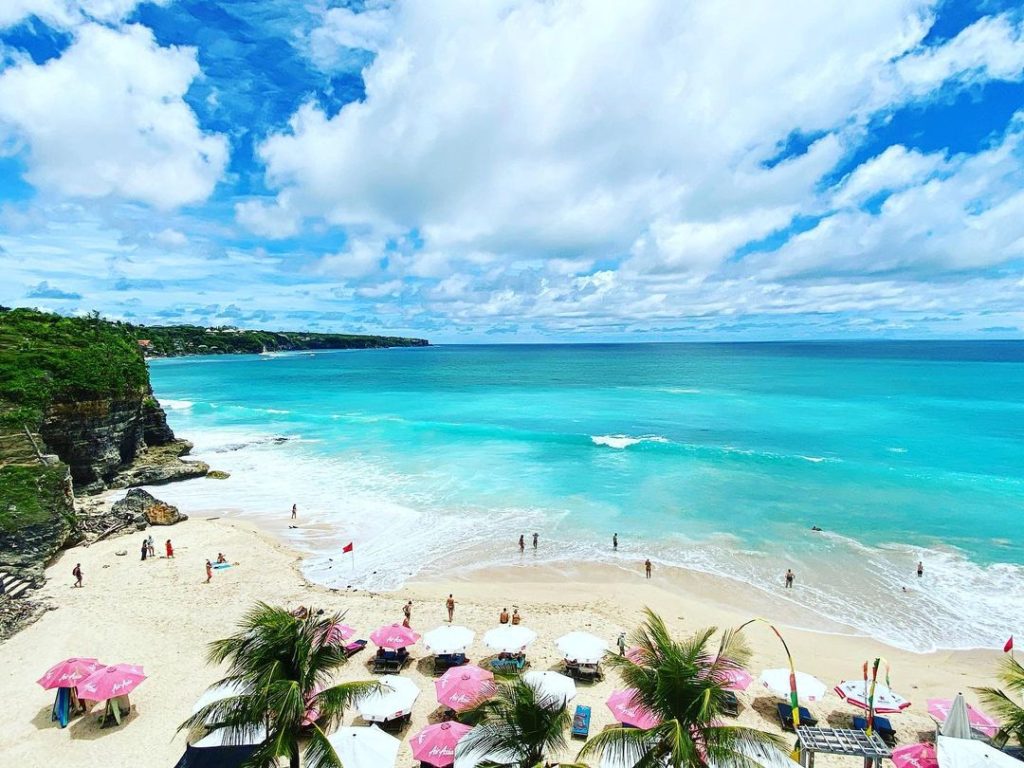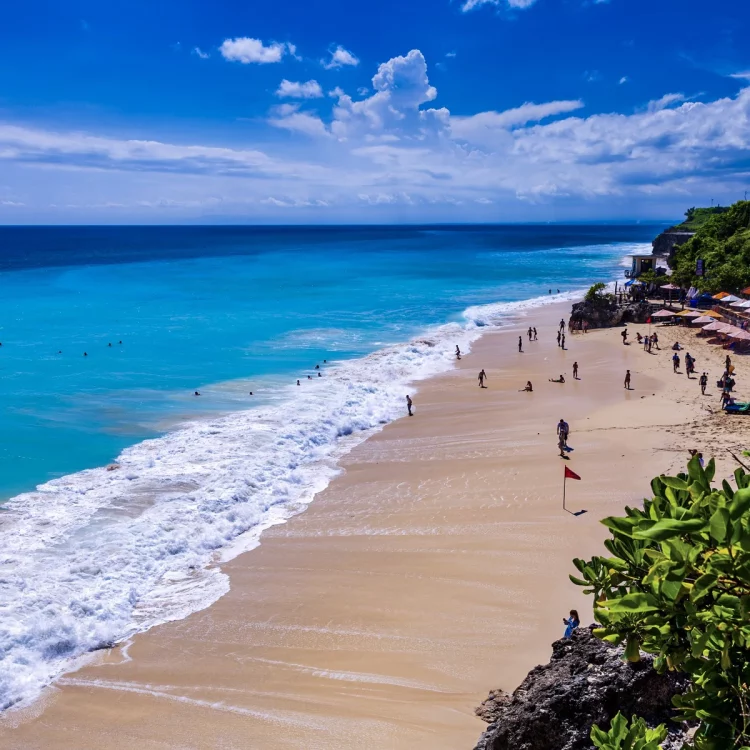Introduction:
Bali, the “Island of the Gods,” is one of the most sought-after travel destinations in the world. With its stunning beaches, vibrant culture, lush landscapes, and rich history, Bali attracts millions of visitors each year. But what is it about Bali that makes it stand out from other destinations? This destination guide aims to explore everything there is to know about Bali, from its top attractions and unique culture to tips for a perfect Bali trip.
Section 1: The Unique Appeal of Bali
- Geography and Climate: Discuss Bali’s geographical features, including its location in Indonesia, the weather patterns (tropical climate), and what to expect in terms of temperature and the best time to visit.
- Bali’s Diverse Appeal: Bali is not just a beach paradise. It has a diverse appeal, ranging from tranquil beaches, terraced rice fields, mountains, and cultural landmarks. This section will dive into the balance between nature, culture, and tourism that Bali offers.
Section 2: Best Time to Visit Bali
- Weather and Seasons: Bali is a year-round destination, but the best time to visit depends on the weather conditions. Discuss the rainy season (October to March) and dry season (April to September), and how each season influences the travel experience.
- Festivals and Events: Explore Bali’s cultural calendar, from religious ceremonies like Galungan and Kuningan, to cultural events such as the Bali Arts Festival, Nyepi Day (Balinese New Year), and other international festivals that occur throughout the year.
Section 3: Top Attractions in Bali
- Beaches of Bali: Bali is famous for its picturesque beaches. Highlight popular beaches like Kuta, Nusa Dua, Seminyak, and Uluwatu, each offering unique experiences—surfing, relaxation, luxury resorts, and cliffside views.
- Temples of Bali: Bali is home to numerous iconic temples. Uluwatu Temple, Tanah Lot, and Besakih Temple offer beautiful views, spiritual experiences, and insights into Balinese Hinduism.
- Rice Terraces and Nature Walks: Discuss the picturesque rice terraces in Ubud, such as the Tegalalang Rice Terrace, and the opportunity for nature walks and hikes in Bali’s volcanic landscapes, including Mount Batur and Mount Agung.
- Wildlife and Marine Life: Bali also has various marine life experiences. Explore the underwater world in Amed, Nusa Penida, and Menjangan Island, where tourists can snorkel and dive among coral reefs and tropical fish.
Section 4: Bali’s Cultural Heritage
- Traditional Balinese Culture: Bali is deeply rooted in its traditions. Explore its indigenous dance forms, such as the Barong and Kecak dances, and how they are intertwined with local mythology and spirituality.
- Crafts and Art: Ubud is known as Bali’s cultural heart, and this section will cover the traditional arts and crafts of Bali, including wood carving, painting, silverwork, and textile arts.
- Balinese Hinduism: Discuss how Balinese Hinduism influences everything in Bali, from the daily offerings (canang sari) to the temples, rituals, and festivals that are central to the island’s way of life.
Section 5: Food and Beverage in Bali
- Balinese Cuisine: Bali’s culinary offerings are diverse and rich. Highlight traditional Balinese dishes such as Babi Guling (suckling pig), Bebek Betutu (slow-cooked duck), and Nasi Campur (mixed rice).
- International Cuisine: Bali also caters to international tourists with an array of global cuisines, ranging from Italian, Japanese, and Indian to vegan and vegetarian-friendly options.
- Popular Dining Spots: Discuss must-try restaurants and cafes, such as the famous cafes in Ubud, Seminyak’s fine dining scene, and beachfront seafood eateries. Bali is known for its Instagram-worthy spots and vibrant nightlife.
- Balinese Coffee and Refreshing Beverages: Bali has a growing coffee culture, with a focus on locally grown beans. Discuss Bali’s unique beverages such as Bali coffee (kopi Bali) and the popular Bintang beer.

Section 6: Accommodation in Bali
- Luxury Resorts and Villas: Bali is known for its high-end resorts and private villas, many of which offer beachfront views or private pools. Discuss the offerings of world-class resorts in Nusa Dua, Ubud, and Seminyak.
- Budget-Friendly Options: Bali also caters to budget travelers with affordable guesthouses, hostels, and homestays. Provide insights on how to find great deals for accommodation.
- Unique Stays: Highlight unique places to stay in Bali, such as treehouses, eco-lodges, and boutique hotels with traditional Balinese architecture and decor.
Section 7: Adventure and Activities in Bali
- Water Sports: Bali is known for its excellent surfing spots like Uluwatu and Kuta, but also offers opportunities for snorkeling, scuba diving, and rafting on the Ayung River.
- Yoga and Wellness: Bali is a renowned destination for wellness, yoga, and spa retreats. Ubud is known for its serene atmosphere and the variety of yoga centers, wellness resorts, and spas.
- Hiking and Trekking: For adventure lovers, Bali offers scenic hikes such as Mount Batur at sunrise, the trek to the summit of Mount Agung, and trails through the lush jungle.
Section 8: Shopping in Bali
- Bali’s Markets: Explore the colorful local markets, such as Ubud Market, where visitors can shop for traditional handicrafts, textiles, jewelry, and souvenirs.
- Boutiques and Art Galleries: Bali is also home to high-end boutiques and art galleries selling unique art pieces, designer clothes, and home decor inspired by Balinese culture.
Section 9: Getting Around Bali
- Transportation Options: Discuss the various ways to get around Bali, such as renting a scooter, hiring private drivers, or using ride-hailing services like Gojek and Grab.
- Navigating Bali’s Traffic: Bali is known for its heavy traffic, especially around tourist hotspots like Kuta and Seminyak. Provide practical advice on how to navigate the roads and avoid peak hours.
Section 10: Sustainable Travel in Bali
- Eco-Tourism and Conservation: Bali is making strides toward eco-tourism, with initiatives to protect the environment, including sustainable hotels, eco-friendly activities, and conservation projects aimed at preserving the island’s natural beauty.
- Respecting Local Culture and Environment: Share tips on how visitors can respect local customs, reduce waste, and support sustainable tourism practices in Bali.
Section 11: Safety and Health Tips for Visiting Bali
- Travel Safety: Discuss Bali’s safety for travelers, including tips on staying safe on the beaches, avoiding scams, and using common sense in tourist areas.
- Health Concerns: Provide information on necessary vaccinations, food safety tips, and advice on dealing with tropical diseases like dengue fever and mosquito protection.
Conclusion: Why Bali is the Ultimate Travel Destination
Sum up the various aspects of Bali that make it an ideal destination for all kinds of travelers. From its scenic landscapes and rich culture to its adventure activities and vibrant food scene, Bali offers something for everyone. Whether you’re seeking relaxation or an action-packed trip, Bali is a place that offers unforgettable experiences.





















